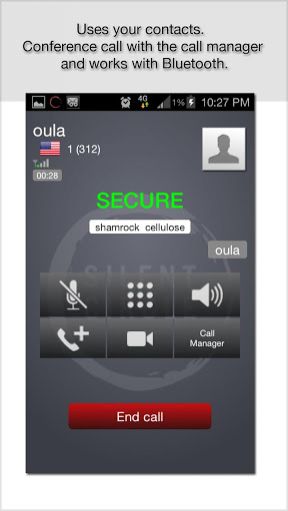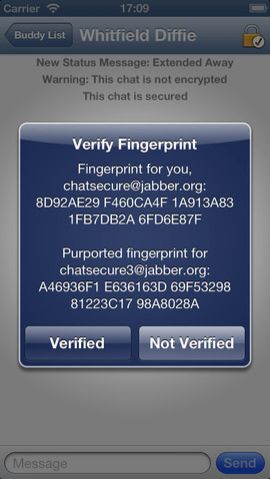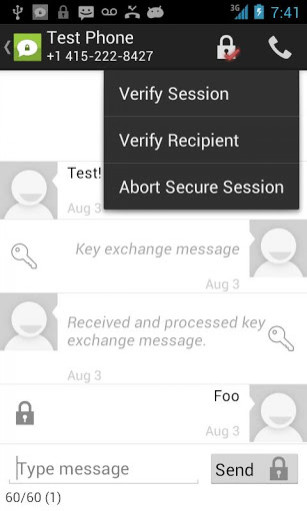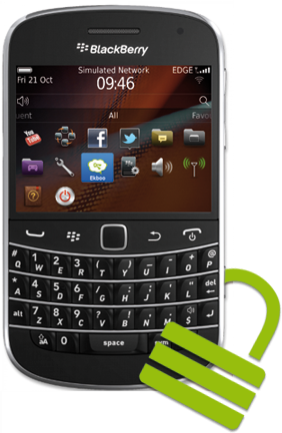PRISM-Proof Your Smartphone: 10 Apps To Keep The NSA Out Of Your Phone
Among the many revelations drawn from the NSA's secret PRISM program, IBTimes noted last week how the NSA's mass surveillance of U.S. citizens had sparked a demand for alternative search engines and social networks that emphasize privacy and anonymity. Given how Apple, the iPhone maker, and Google, the developer of Android, have both been implicated in PRISM -- particularly in regards to collecting metadata from Verizon Wireless customers -- people are also looking for ways to protect their use of mobile devices.
Unfortunately, this isn’t as easy as just finding an alternative website, especially considering contracts with service providers and the few hundred dollars customers drop to get the devices in the first place. Is there any way to keep to government out of your cell phone?
The key to having an NSA-proof phone is to always use end-to-end encryption. What this means is that all data is first encrypted on the device before it is sent off and decrypted by the receiving device. Using apps designed for this purpose will avoid servers that can forward the data along to the NSA.
Below are apps and services that will help make a smartphone NSA-proof.
Calling

RedPhone (Android): Free and open-source program that offers secure and encrypted calling. Conversations will only be completely secure if both users are using RedPhone. RedPhone uses WiFi or a data plan rather than the phone service. Service providers don’t get access to metadata on the calls.

Silent Phone (iOS and Android): Requires a subscription fee, but can work when calling cross-platform. Users get a unique 10-digit number that can be used to interact with existing contacts. For an added fee, Silent Phone users can use the number to make calls to non-Silent Circle members, although only one side of the conversation will be encrypted.
Ostel (iOs and Android): Uses the Open Secure Telephony Network to allow for encrypted calls across various apps on different mobile platforms. Users create an account with Ostel.co, then download an app for their device. Android users can get CSipSimple, iOS users can download Groundwire (which is a $10 download and requires a $25 in-app purchase to place secure calls), and BlackBerry and Nokia Windows Phone users can get PrivateGSM (which requires a paid membership).
Text Messaging
Gibberbot (Android): This app works with Facebook chat, Google Chat, Jabber and other popular instant messaging clients. However, conversations will only be secure if both parties in the conversation are using a program like Gibberbot.

ChatSecure (iOS): Encrypts the conversations and keeps them between the initial user and the recipient. Works with Google Chat and Jabber, and can be used cross-platform.

TextSecure (Android): Made from the same people that made RedPhone, TextSecure replaces the default Android SMS/MMS app instead of using instant messaging. Again, both parties need to be using the app for end-to-end encryption. Telephone companies also have access to the metadata on the conversations, but the developer is working to eliminate this.

Ekboo (BlackBerry): A plugin that will encrypt BlackBerry BBMs. Also has a feature called TextBomb, which sends temporary text messages that will automatically delete after a predetermined time, like SnapChat or Inspector Gadget.
Web Browsing
Orweb (Android): Built by The Guardian Project and approved by the Electronic Frontier Foundation, this web browser uses Tor to get around network restrictions and encrypt activity. The app can hide which device you’re using, control cookies and block Flash. Orweb also doesn’t keep a history. Users will need to also install Orbot.

Onion Browser (iOS): This $1 app will allow iOS users to access the Tor network, hiding their IP addresses and encrypting activity.
Emailing

Enlocked (iOS, Android, and others): Enlocked can be downloaded as an app on iOS and Android devices, and can be installed as a plug-in to most other browsers. Allows users to send and receive encrypted emails from Gmail, Yahoo, AOL and Outlook for free. The only catch is that email recipients must also have Enlocked in order to receive the email.
Do you use any of these apps to protect the data on your phone? Or do you prefer other apps? Let us know in the comments section.
© Copyright IBTimes 2024. All rights reserved.






















